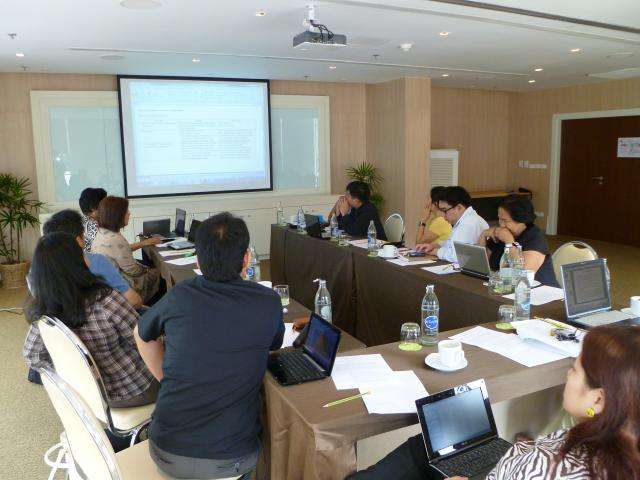By Focus on the Global South-Philippines
Bangkok – As ASEAN advances towards its goal of becoming an economic community in 2015, it has to confront urgent issues relating to the people’s right to information, trade and economic agreements, and the environmental concerns resulting from this integration into the regional and global economy.
Regional and national civil society organizations gathered in Bangkok, October 26, for the “Taking Stock, Moving Forward towards ASEAN Peoples’ Campaigns” conference, called on ASEAN to address these urgent concerns. The meeting was spearheaded by the Solidarity for Asian People’s Advocacies (SAPA) Working Group on ASEAN.
An overarching advocacy supported by various groups is the development of a freedom of information policy for ASEAN, to cover information produced or received by ASEAN and its many organs as a regional body, subject only to narrow list of reasonable exceptions. According to lawyer Nepomuceno Malaluan of the Institute for Freedom of Information (I-FOI) and the Philippine-based Right to Know. Right Now! Coalition, “international or intergovernmental organizations like ASEAN are bound by international law that recognizes the people’s right to information. The people’s right to information has also been affirmed in practice, with more than 80 countries having enacted Freedom of Information (FOI) legislations, and various intergovernmental organizations such as the Asian Development Bank, the World Bank, the UNDP, and bodies of the European Union adopting comprehensive access to information policies.”
Among ASEAN member countries, Thailand and Indonesia have enacted an FOI law, while the Philippines recognizes the right to information in its constitution and is also nearing the passage of its own FOI act. There is also a campaign for an FOI legislation in Malaysia, and a similar initiative is nascent in Vietnam. Malaluan called on these states to take the lead in pushing for the adoption of a progressive FOI policy for ASEAN.
Supporting the argument for an ASEAN Protocol on FOI, Jenina Joy Chavez of the regional think tank Focus on the Global South said that “aside from it being a right in itself, freedom of information is crucial in facilitating the exercise of other rights like freedom of expression and the right to participate. It is also vital in exacting accountability and upholding community rights through free prior and informed consent.”
In an earlier strategy meeting on the ASEAN FOI Protocol attended by key advocates, experts and campaigners in the region, October 25, Chavez pointed out that “the three blueprints for an ASEAN Community all contain clauses for a communications strategy.” She cited a provision in the ASEAN Political Security Community Blueprint that provides for a communications strategy that “will not only create greater public awareness of the various initiatives, outcomes and issues of the APSC, but also enable all stakeholders to be involved in the process”.
In the same meeting, Kulachada Chaipipat of the Southeast Asian Press Alliance said that “the region has long been a hotspot for the lack of freedom of information and of expression, and it is high time ASEAN did something about it.”
Speaking via Skype, Joseph Purugganan of the EU-ASEAN FTA campaign network lamented that trade negotiating processes and the economic/trade agreements by ASEAN were often not subjected to public consultations. “If the World Trade Organization has to be notified about these agreements, the citizens of ASEAN also have the right to be informed”, Purugganan argued.
No longer just ‘emerging issues’
Jacques Chai, also from Focus on the Global South, said that ASEAN member states negotiate with various trading partners like the EU, the US, and among themselves, but access to information in these negotiations is almost nil. He criticized the intergovernmental body for “failing to come up with a single voice in negotiating with the EU, and with the EU ironically assisting ASEAN to come up with a single position.”
The environment is another issue considered urgent by civil society. Dorothy-Grace Guerrero, a senior associate at Focus on the Global South and member of the SAPA Working Group on Environment, stressed that ASEAN cannot delay actions to deal with global warming and climate change, and argued that a fourth pillar on the environment is imperative to complete the foundation for the ASEAN community. “Environmental concerns”, according to Guerrero, “can no longer be just subsumed into the ASEAN mechanisms on economic and social-cultural rights; it is an urgent issue that cuts across governance, resource management, and environmental-related disasters.”
The groups committed to develop the instrument for access to information, as well as to flesh out the coverage and functions of a fourth pillar on the environment.
ASEAN will hold its 17th Leaders Summit in Hanoi on October 28-29. Unlike in previous years, there will be no interface with representatives of civil society organizations during the Hanoi meeting. #
If you have inquiries, please contact Ms Clarissa V. Militante (Media and Communications Associate) at number (632) 433-08-99; or through the email [email protected]







